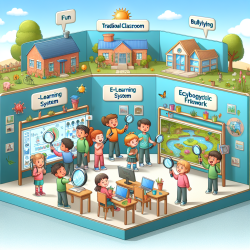The COVID-19 pandemic has reshaped many aspects of our lives, not least our understanding of mental health. Traditional methods of assessing mental health impacts have struggled to keep up with the rapid changes and widespread effects of the pandemic. However, a new avenue has emerged: the use of social media big data. This innovative approach offers both opportunities and challenges for mental health research and practice.
The Power of Social Media Big Data
Social media platforms have become a significant part of daily life for billions around the globe. During the pandemic, these platforms served as vital outlets for individuals to express their thoughts and emotions. This massive influx of user-generated content provides a rich source of real-time data that can be analyzed to understand mental health trends.
Opportunities for Practitioners
- Real-Time Insights: Social media data allows practitioners to monitor mental health trends as they happen. This can enable timely interventions and support.
- Broader Reach: Unlike traditional surveys, social media data includes diverse demographics, offering insights into underrepresented groups.
- Predictive Analytics: Machine learning and natural language processing can predict mental health issues based on social media activity, allowing for proactive measures.
Challenges to Consider
While the potential is vast, there are significant challenges in using social media data for mental health research.
- Data Validation: Ensuring that the insights derived from social media are accurate and comparable to traditional assessment tools is crucial.
- Ethical Concerns: Privacy issues and the ethical implications of using personal data must be carefully managed.
- Biases in Data: Social desirability bias and self-idealization can skew results, making it essential to interpret data with caution.
Navigating Ethical Concerns
The ethical use of social media data in research involves several considerations. Practitioners must ensure that data collection respects user privacy and consent. Developing ethical guidelines specific to social media research is critical for safeguarding individuals' rights and maintaining trust.
A Call to Action for Practitioners
The integration of social media big data into mental health research is still in its infancy but holds great promise. Practitioners are encouraged to explore this field further by:
- Engaging with Interdisciplinary Research: Collaborate with data scientists and ethicists to develop robust methodologies.
- Pursuing Continuous Learning: Stay informed about technological advancements in data analysis through webinars and conferences.
- Advocating for Ethical Standards: Participate in discussions to establish ethical guidelines for using social media data in research.
The potential benefits of leveraging social media big data in mental health research are immense. By addressing the challenges head-on, practitioners can contribute to a more nuanced understanding of mental health dynamics during crises like COVID-19 and beyond.
This exploration into the world of social media big data is just beginning. For those interested in delving deeper into this topic, reading the original research paper provides a comprehensive foundation.










